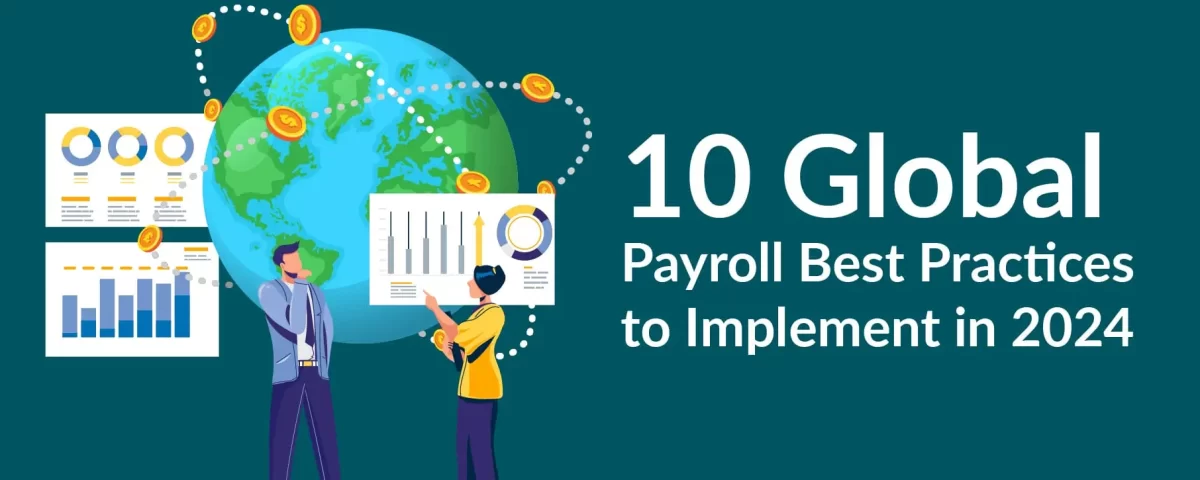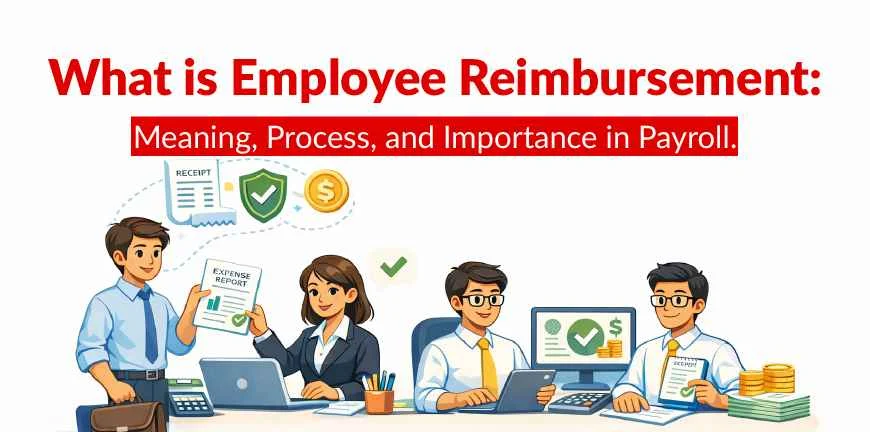
How Private Aerospace Companies Are Hiring for the Future?
11/04/2024
How Do Executive Search Firms Work?
16/04/2024- 1. Implement payroll policies and procedures that fit right with the entire system
- 2. Write down the important dates and deadlines for payroll processing for the year
- 3. Notify yourself of the crucial deadlines!
- 4. Proper classification of your employees
- 5. Automate your payroll system
- 6. Incorporate real time tracking and analysis
- 7. Set up easy payment options
- 8. Get a software that also facilitates mobile self service
- 9. Implementation of a strong data protection policy
- 10. Outsource your payroll to an expert global payroll service provider
Its 2024, and it’s about time that we implement the best global payroll practices, using new advanced technologies that have made processing payroll so much easier than it was. Managing payroll is quite a task for organizations operating locally from a specific location regardless of their strength, nature, or industry. You can’t even begin to think about the complexities involved when it comes to the management of global payroll. Running payroll for an organization set up and operating in multiple countries or locations can become chaotic without the implementation of proper global payroll practices.
An ideal payroll process, although simple, is complex to execute, one that bolsters compliance efforts and provides employees with an experience they cannot complain about better yet, are satisfied with. But how do you get there?
In this article we will explore some of the best payroll practices that would help your team function at its best on a global scale.
1. Implement payroll policies and procedures that fit right with the entire system
Having the right set of policies and procedures in place is extremely important to run payroll globally. This will help implement the best global payroll practices and run a payroll process very smoothly as the right policies and procedures will ensure that your entire payroll team operate with the same standards.
Some of the important things that your payroll policies and procedures must define are-
- Components of payroll
- Payment schedules, methods, and processes
- Payroll deductions
- Compensation and benefits
- Data entry processes
- Report handling standards
- Record keeping processes
- Pre-payroll and post- payroll processes
2. Write down the important dates and deadlines for payroll processing for the year
Nothing is hard if you plan beforehand. Luckily, all the important payroll dates and deadlines are issued in prior to make your work easier. All you need to do is note down these important dates and make sure you strategically plan your payroll processing to avoid heavy fines and non-compliance.
Some of the important dates that you absolutely must set are-
- Paydays- weekly, bi-weekly, bi-monthly, or monthly
- Non-operational dates/holidays for local banks
- IRS deadlines to file tax returns
- Federal reserve closed dates
3. Notify yourself of the crucial deadlines!
Now while you may have written down the important deadlines, there’s a chance you could miss them, as you may have a lot of other business operations that require your attention. So, set up notifications to ensure you don’t miss the dates to file and submit your returns. Deadlines vary depending on the respective country’s payroll laws and schedule.
There are a few ways you can go about this-
- Automate the notification process through a payroll system or software that integrates well with your in-house HR (Human Resource) systems.
- Create a payroll calendar in your team’s google calendar, invite all the members involved in the payroll team to the event deadlines throughout the year.
4. Proper classification of your employees
You must classify your workers in order to run payroll correctly. Various categories of employees have different rules, based on their type of employment, whether they are full-time employees, part-time employees, or contract-based employees. Some are exempt and some are non-exempt employees, and each must collect and fill the right forms in order to be liable for the right benefits and receive the right pay.
Misclassification of employees leads to loss of tax revenue for the government bodies and for the employer it can result in heavy fines and penalties.
5. Automate your payroll system
As part of implementing best global payroll practices, incorporating a payroll software is the most crucial step. Payroll Software may be one of the most important inventions of recent years. Automating your payroll system not only helps take off the load on your payroll department but also ensures accurate, error-free global payroll processing improving tasks like tax-filing, payroll compliance etc.
A payroll software can take over some crucial tasks such as
- Payroll calculations including overtime, bonuses etc
- Calculation of tax deductions
- Payroll reporting
- Tax filing
6. Incorporate real time tracking and analysis
Whether you are reviewing or updating employee payroll information or want to look at the tax contributions being made, a data report is necessary. A global payroll processing platform gives you a detailed overview of your payroll data helping you make informed data-based decisions about your payroll from multiple locations.
7. Set up easy payment options
Direct deposit is one of the easiest, hassle-free payment options, as the money gets deposited directly to the employee’s bank account. It’s time we moved on from paper checks too. Don’t you think? Not only does it improve your overall payroll process but also elevates your employee experience, whether its independent contractors, full-time employees, or others.
8. Get a software that also facilitates mobile self service
Look for a software that takes care of certain repetitive tasks with self-services functions. This is an important facilitation for the HR team, as these tasks take away the precious time of the team, they could be otherwise use for creating useful strategies. Tasks like attendance logging in and out of employees, automatic uploading of the payslips, submission of tax information.
Make sure the payroll system you choose has an employee self-service portal, is mobile friendly, so that employees can login to their profiles at any point of time and can access information relating to their salaries or other personal information that they would like to update etc.
9. Implementation of a strong data protection policy
As an organisation, protecting your payroll data must be one of your top priorities. Payroll teams hold a lot of confidential data about employees, such as their bank account numbers, payslips, personal information etc. Whether you are outsourcing your global payroll services or handling it in-house with a payroll software, making sure that this crucial data isn’t leaked is of extreme importance.
Our suggestion is you opt a cloud-based solution, as its easier and safer. Storing data in cloud ensures safety and confidentiality. If you choose a third-party payroll services provider, then you must have a data processing agreement in place to ensure there is no misuse of data.
10. Outsource your payroll to an expert global payroll service provider
You may have a talented team within your company, who are able enough to handle payroll, but its best to outsource it to an expert global payroll service provider. And this is especially even better if you are a global organization operating in different regions and offices. Manging payroll of international employees can get quite complex over time for the in-house team as they will be responsible for a lot many things other than the payroll.
An expert payroll services provider will make sure they implement only the best global payroll practices to streamline your payroll processing and always remain 100% compliant. Some of the benefits of outsourcing your payroll to an expert third party payroll services provider are-
- Access to expertise
- Saves time
- 100% compliance
- Error-free timely payroll process
- Improved employee experience
If you are a company operating on an international scale with entities in multiple countries, you must ensure payroll best practices are being used to process the payroll. To ensure the same its best to engage an expert third party global payroll service provider such as Alp Consulting with a known reputation and houses payroll experts who are the best at what they do and have a rich experience in processing payroll globally to different industries regardless of their strength and nature.
Contact Us For Business Enquiry

Yugandhara V. M
Yugandhara V. M serves as the Assistant Vice President – HRO at Alp Consulting Ltd., bringing over 14 years of rich experience in Human Resource Outsourcing, payroll management, and statutory compliance. He specializes in driving process excellence across HR operations, ensuring seamless service delivery and compliance with labor laws. Yugandhara’s expertise lies in managing large-scale client engagements, optimizing HR processes, and implementing efficient workforce management systems that enhance organizational performance. He also leads comprehensive payroll services, ensuring accuracy, timeliness, and compliance for diverse client portfolios.




